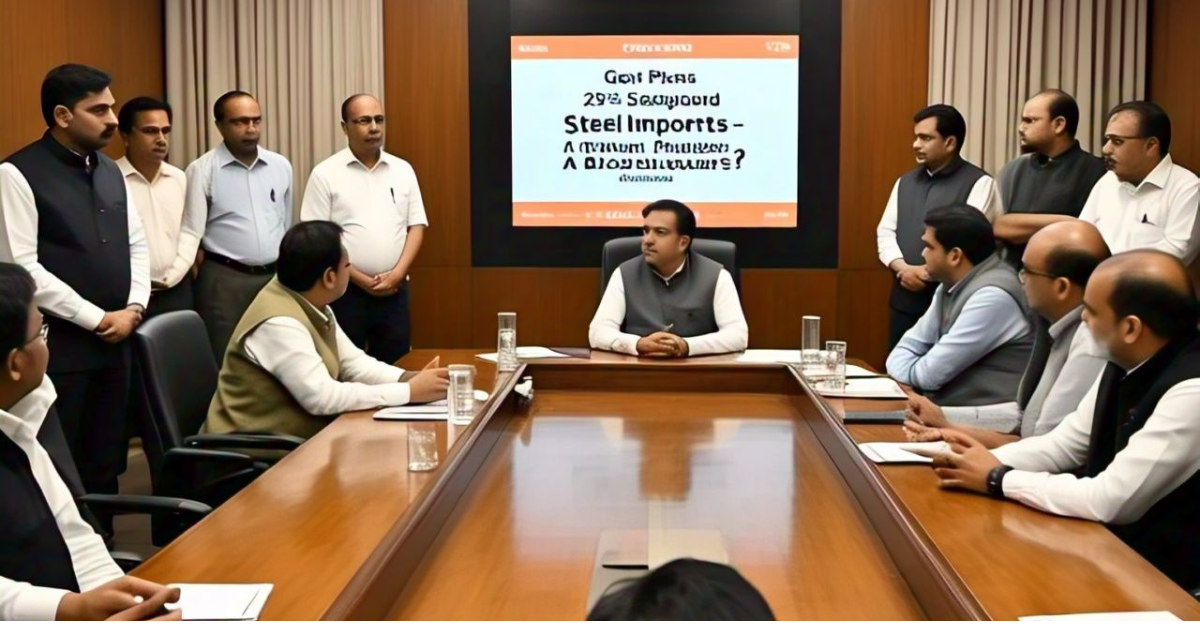India–US Trade Tensions Rise Over Steel and Auto Tariffs NMDC Limited reports a 38% drop in Q4 FY24 consolidated net profit RINL to Raise $23 Million Through Land Sales Amid Crisis

To protect the domestic steel industry, the Indian government has proposed a 25% safeguard duty on certain steel imports. This aims to curb the impact of rising low-cost imports, mainly from China, which threatens the competitiveness of local producers.
The proposal was discussed in a high-level meeting in New Delhi, attended by Union Steel Minister H.D. Kumaraswamy, Commerce and Industry Minister Piyush Goyal, and executives from leading steel companies like Tata Steel, SAIL, JSW Steel, and ArcelorMittal Nippon Steel India. Officials explored ways to enhance domestic production and ensure fair market conditions.
India has seen a sharp rise in steel imports, reaching 5.51 million tonnes between April and September 2024, compared to 3.66 million tonnes in the previous year. Imports from China alone surged from 1.02 million tonnes to 1.85 million tonnes, raising concerns over market share erosion for domestic firms.
Industry leaders have repeatedly voiced concerns over cheap imports from Free Trade Agreement (FTA) nations, which enter duty-free, making regular tariffs ineffective. Steel Secretary Sandeep Poundrik highlighted that 62% of imported steel comes from these FTA nations, reinforcing the need for a safeguard duty.
The proposed duty is expected to last up to two years, giving local producers time to adjust. The finance ministry will make the final decision based on recommendations from the commerce ministry.
Anticipation of the duty has already boosted stock prices of major domestic steel companies. Analysts believe this move will strengthen Indian steelmakers, allowing them to compete fairly while securing India’s long-term industrial growth.
Also Read : Budget: Sitharaman hikes capital spend, trims deficit for next fiscal; tax rates unchanged GST revenue collection hits record high of ₹2.10 lakh cr in April